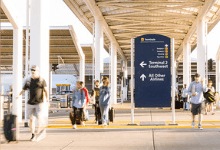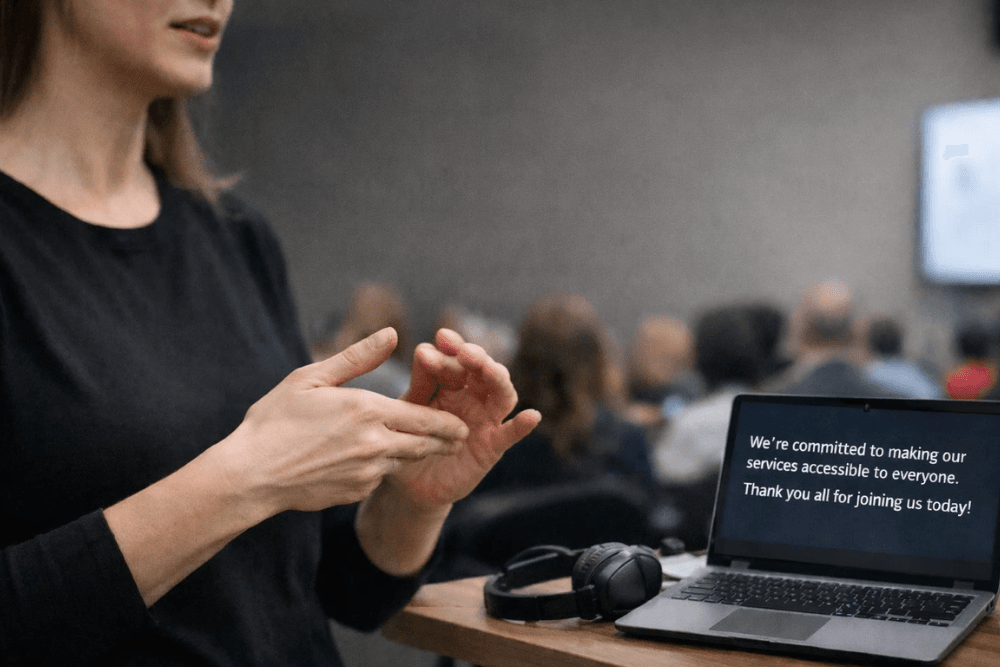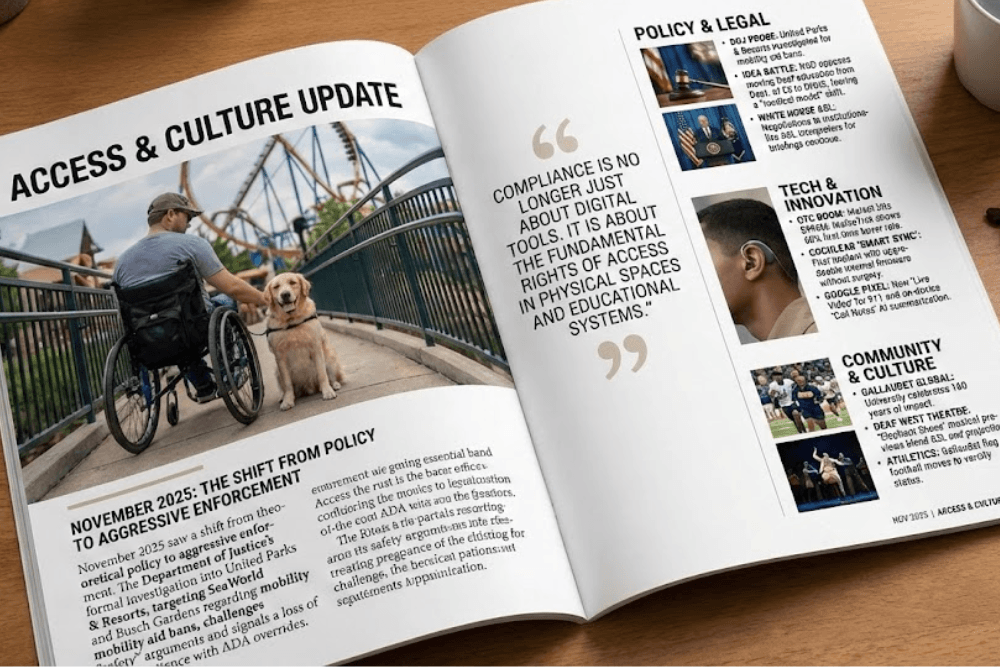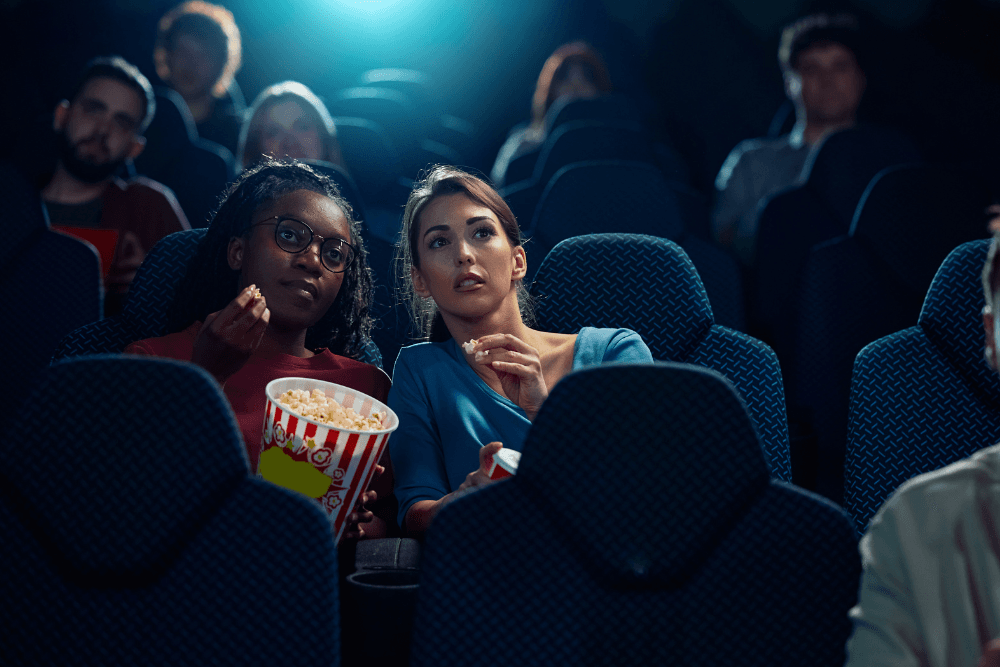A significant week for Deaf rights and accessibility saw major policy deadlines, technology breakthroughs, and cultural advocacy milestones across the United States and internationally.
Deaf Week Launches Global Rights Campaign
The World Federation of the Deaf kicked off International Week of Deaf People on September 22 with the theme “No Human Rights Without Sign Language Rights,” targeting specific UN Convention articles for legal recognition of sign languages.
The campaign mobilizes 70+ million deaf people across 120 countries to pressure governments on Article 21 (recognition), Article 11 (emergency access), and Article 24 (education) compliance. WFD’s guidance emphasized Deaf-led partnerships with NGOs and daily advocacy actions, providing a framework for U.S. organizations during Deaf Awareness Month. The timing aligns with multiple state-level policy initiatives and creates momentum for interpreting services expansion. Local Deaf associations are adapting the international messaging to push for state-level ASL recognition laws and improved interpreter standards.
The campaign’s emphasis on “nothing about us without us” directly challenges hearing-dominated decision-making in accessibility policy.
Maryland Interpreter Licensing Hits Comment Deadline
Maryland’s Governor’s Office of the Deaf and Hard-of-Hearing closed public comments on Sign Language Interpreter licensure regulations, marking the final community input phase before the state implements mandatory licensing January 1, 2026. The regulations establish minimum competency standards, continuing education requirements, and a formal complaint process for consumers experiencing inadequate services. Interpreter agencies must now prepare for significant operational changes including credentialing verification systems and updated contracting procedures.
The rules directly address longstanding quality concerns where unqualified interpreters caused medical errors, legal misunderstandings, and educational barriers. Consumer advocates successfully pushed for stronger accountability measures including public databases of licensed interpreters and expedited complaint resolution. The regulations notably include provisions for emergency situations while maintaining quality standards, balancing access needs with professional requirements.
HBO Max Launches ASL Interpretation for Superman

The feature’s success will hopefully normalize ASL interpretation across streaming libraries, transforming how media companies approach accessibility.
Oakland Airport Pioneers Free ASL Interpretation

The service covers check-in, security screening, boarding, and airport navigation, eliminating communication barriers that previously made air travel stressful or impossible for many Deaf travelers. Building on Oakland’s 2024 launch of visual interpretation for blind passengers, the airport positions itself as a national accessibility leader.
The implementation required training 500+ airport staff on using the system and coordinating with TSA for security checkpoint procedures. Aviation analysts expect other major airports to follow Oakland’s model, particularly as business travelers increasingly expect seamless accessibility. The free service removes the financial burden previously placed on Deaf travelers who had to arrange and pay for their own interpreters.
UK Interpreters Debate AI Impact on Profession
The UK’s Association of Sign Language Interpreters hosted a critical briefing examining artificial intelligence’s growing role in interpretation, with implications for ASL professionals globally. The session addressed concerns about automated tools replacing qualified interpreters in video relay services and virtual meetings, emphasizing that AI cannot capture cultural nuance or complex emotional context. Interpreting companies face pressure to adopt cost-cutting AI solutions while maintaining ADA compliance and quality standards.
The discussion highlighted successful human-AI collaboration models where technology handles scheduling and preliminary translation while certified interpreters provide actual services. Regulators received guidance distinguishing between appropriate AI assistance and inadequate automated substitutes that violate accessibility laws. The briefing’s conclusions influence how U.S. agencies approach AI procurement and set expectations for maintaining human interpreters in critical settings.
Administration Cuts Deafblind Education Funding
The Department of Education terminated federal funding for deafblind student programs in eight states, citing conflicts with anti-DEI policies after grant applications used terms like “inequities” and “privilege.”
The cuts affect over 1,000 students in Wisconsin, Oregon, Washington, Massachusetts, Maine, Connecticut, New Hampshire, and Vermont, dismantling a 40-year-old support network for teacher training and family resources.
Disability advocates warn this precedent threatens all federal accessibility programs that acknowledge systemic barriers or disparate outcomes. Schools scramble to maintain services without federal support while families face immediate loss of specialized educational assistance. The ideological targeting of established disability programs forces nonprofits to reconsider grant language while maintaining commitment to addressing documented service gaps. Legal challenges are expected as advocates argue the cuts violate the Individuals with Disabilities Education Act.
EEOC Sues Auto Manufacturer for Disability Discrimination
The Equal Employment Opportunity Commission filed suit against Michigan’s Autokiniton for illegally barring a successful female apprentice from re-entering their program because she occasionally used a cane. The lawsuit challenges pervasive stereotypes where employers assume visible disabilities indicate inability despite demonstrated competence and performance.
The case reinforces that ADA protections extend to perceived disabilities and employer assumptions about future limitations. Manufacturing sectors face particular scrutiny as traditional “safety concerns” often mask discriminatory practices against workers with disabilities. The legal action seeks compensatory damages, policy changes, and monitoring to ensure compliance. Industrial employers nationwide review policies to avoid similar enforcement actions while disability advocates use the case to push for stronger workplace protections.
Film Industry Confronts Deaf Representation Gaps
Actor Troy Kotsur declared that Hollywood’s recognition of Deaf culture is “just beginning,” emphasizing the need for Deaf creators controlling narratives rather than merely appearing on screen. His comments at a premiere highlighted how authentic representation requires Deaf writers, directors, and producers making creative decisions, not just casting Deaf actors in hearing-written roles. Industry data shows over half of Deaf consumers rarely see themselves represented, driving streaming services to reconsider content strategies.
Production companies increasingly recognize that Deaf-led projects attract both Deaf audiences and hearing viewers interested in authentic storytelling. The push challenges fundamental power structures in entertainment where hearing executives have historically decided how Deaf stories get told. Success metrics now include not just on-screen diversity but behind-camera leadership and economic participation.
Detroit Filmmaker Builds Deaf Media Infrastructure
Deaf filmmaker Teddy Dorsette III’s Reel Def Entertainment creates pathways for Deaf youth entering media industries through mentorship and production opportunities. Dorsette’s nonprofit addresses systemic barriers where Deaf creators lack access to funding, networks, and decision-making roles that perpetuate hearing-dominated narratives.
The organization provides technical training, industry connections, and production support enabling Deaf artists to create and distribute their own content. His model demonstrates how community-led infrastructure can bypass traditional gatekeepers who have historically excluded Deaf perspectives. Success stories from program participants show increased employment in production roles and growing recognition of Deaf storytelling value. The initiative influences how film schools, studios, and funding organizations approach inclusion beyond surface-level representation.
Advocacy Momentum Builds Amid Policy Crossroads
This exceptionally active week in Deaf and Hard-of-Hearing accessibility demonstrates the community navigating between breakthrough achievements and serious threats. The convergence of International Week of Deaf People with major U.S. policy developments created unique advocacy opportunities, while technology innovations from Oakland Airport and HBO Max set new accessibility benchmarks that shift from compliance to genuine inclusion.
The federal defunding of deafblind programs signals dangerous precedent where ideological objections to equity language can dismantle decades-old disability supports, forcing advocates to defend basic services while pushing for expansion elsewhere. Maryland’s interpreter licensing deadline and EEOC enforcement actions show states and federal agencies still advancing protections despite political headwinds. The week’s developments reveal a Deaf community simultaneously celebrating cultural victories in media representation and airport access while mobilizing against existential threats to educational programs. This dichotomy reflects broader disability rights tensions where private sector innovations outpace government support, creating uneven progress that depends heavily on continued advocacy and legal protection.






